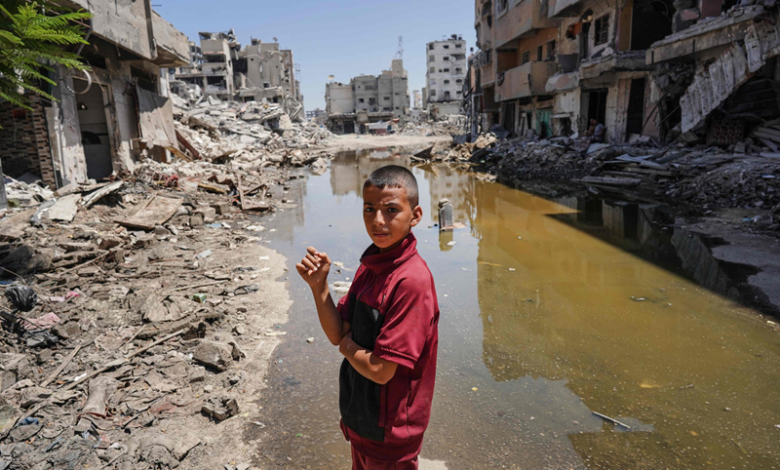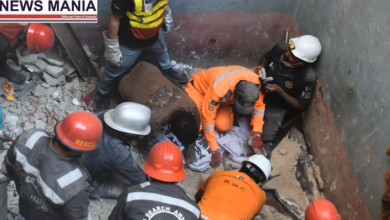WHO Raises Alarm Over Potential Polio Outbreak in Gaza Following Detection in Wastewater

News Mania Desk/Agnibeena Ghosh/24th July 2024
The World Health Organization (WHO) has issued a strong warning regarding the potential risk of a polio outbreak in Gaza after traces of the highly infectious polio virus were detected in the region’s wastewater. This alarming development has led the WHO to initiate a comprehensive risk assessment to evaluate the threat and determine appropriate intervention measures. Dr. Ayadil Saparbekov, the head of the WHO’s team in the Palestinian territories, has stressed the gravity of the situation and the immediate need for preventive action.
Dr. Saparbekov reported that the discovery of polio virus traces in wastewater is a serious concern because it indicates that the virus could potentially spread within the community. As part of the WHO’s response, health workers are actively engaged in providing critical protection advice to Gaza’s 2.3 million residents. This guidance aims to educate the population on measures to prevent the transmission of the virus and mitigate the risk of a larger outbreak.
However, the effectiveness of these preventive measures is severely hampered by the region’s deteriorating infrastructure. Gaza’s water and sanitation services are currently in a state of disrepair, which complicates the ability to implement and monitor public health advisories effectively. The breakdown in these essential services not only hinders the dissemination of health information but also exacerbates the risk of virus transmission due to potential contamination of water supplies.
Polio, a highly contagious disease caused by the poliovirus, primarily affects children and can lead to severe complications, including paralysis. The detection of the virus in wastewater suggests that it is circulating within the community, making it crucial to address the situation promptly to prevent a widespread outbreak. The WHO’s efforts are focused on coordinating with local health authorities to deploy resources and support aimed at controlling the potential spread of the virus.
In addition to the immediate health response, the WHO is working to address the underlying issues contributing to the vulnerability of Gaza’s population. The region’s ongoing conflict and blockades have led to significant damage to infrastructure and public services, which are critical for maintaining public health and preventing disease outbreaks. The international community’s involvement will be crucial in providing the necessary support and resources to help Gaza recover from these challenges.
The potential outbreak of polio in Gaza highlights broader issues related to public health preparedness and the impact of geopolitical conflicts on health infrastructure. The WHO’s proactive stance and risk assessment efforts are vital in preventing a public health crisis and ensuring that residents receive the necessary support and protection.
The situation in Gaza serves as a stark reminder of the importance of robust health systems and infrastructure in managing and preventing infectious disease outbreaks. As the WHO continues its efforts to mitigate the risk of a polio outbreak, the global community’s attention and support will be essential in addressing the immediate and long-term challenges facing the region.





